Breaking Barriers on the Water: Cal Poly Engineers Bring Adaptive Paddleboarding to Shaver Lake
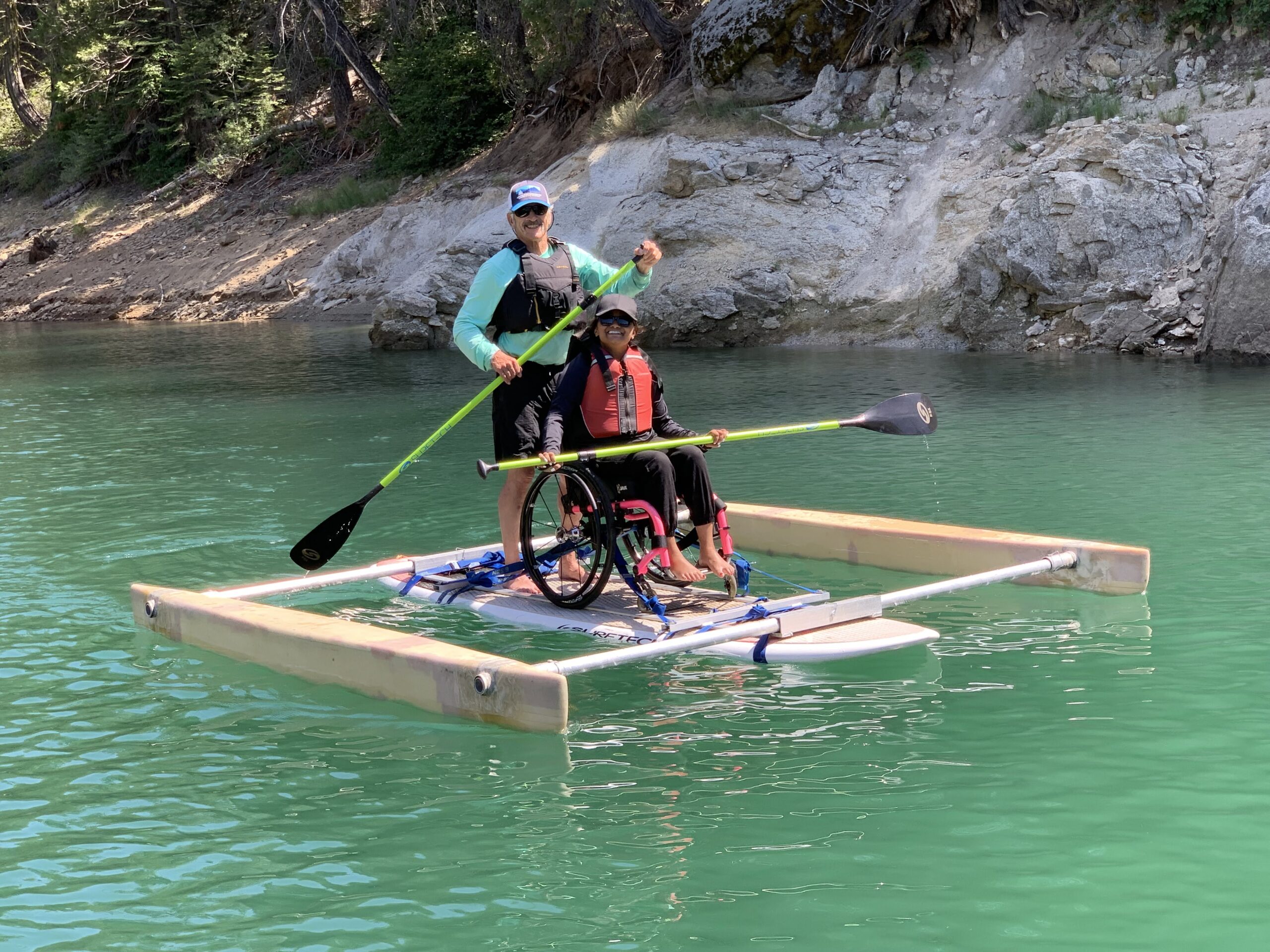
Families have long gathered at Shaver Lake, paddling across its glassy surface, soaking in the fresh mountain air and enjoying the rhythm of the lake. For many, it’s a place of connection and exploration. But for those with mobility impairments, that freedom wasn’t always within reach.
Randy Coffman saw that barrier, but he also saw something else: an opportunity.
As executive director of the Central California Adaptive Sports Center, he has spent years expanding outdoor experiences, making it possible for people of all abilities to experience the natural world in new and meaningful ways.
“When you take away the barriers, people start to see what’s possible,” he said.
That belief led him to a partnership with Cal Poly engineering students eager to take on a challenge: designing a paddleboard that could safely carry wheelchair users across the lake — not just giving them access, but ensuring they could be active participants, sharing the water with family and friends.
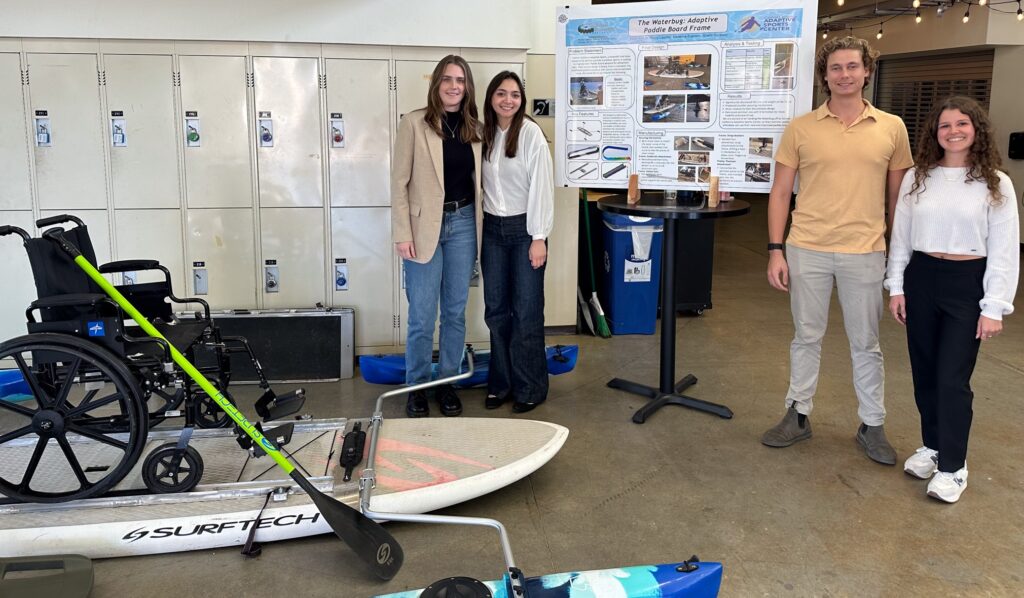
From Rescue to Recreation
Coffman hadn’t always been involved in adaptive sports. His career had been spent in the outdoors but in a different capacity — more than 30 years as a national park ranger, leading emergency response efforts in some of the country’s most remote and rugged landscapes. He had dedicated his life to helping people safely navigate the wild, but it wasn’t until a day of skiing in Crested Butte, Colorado, that he saw outdoor recreation through a different lens.
“I was on the mountain when I saw sit skiers with instructors,” he said. “I turned to my wife, Lisa, and said, ‘I want to be a part of this.’”
That moment set him on a new path. After years of volunteering and learning adaptive snow sports, Coffman returned to California with an idea: to create an adaptive sports program in the Central Sierra. What started as a small winter program at China Peak Mountain Resort in 2014 soon expanded into a year-round operation, offering skiing and snowboarding in the winter and activities like rock climbing, mountain biking, kayaking and camping in the summer at Shaver Lake.
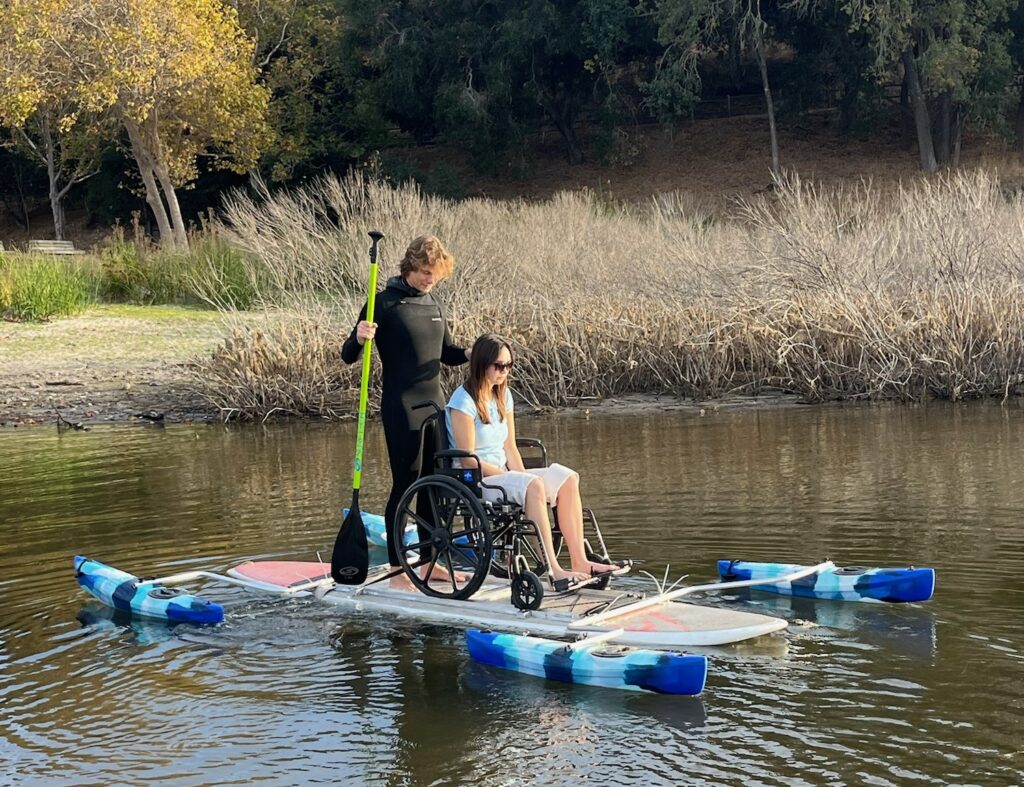
The Central California Adaptive Sports Center now serves more than 800 participants, mostly from the Central Coast and Central Valley. As the center grew, so did Coffman’s vision.
One day, while skiing at China Peak, two College of Engineering faculty members visited the adaptive center and struck up a conversation. They mentioned that the university’s Mechanical Engineering Department assigned senior projects each year and left their contact information with Coffman.
That connection led him to mechanical engineering Professor Peter Schuster, who was eager to help.
“I told him we needed a paddleboard for people who use wheelchairs, such as those with spinal cord injuries and amputations,” Coffman said. “Something that would let them get out on the water and be part of the experience.”
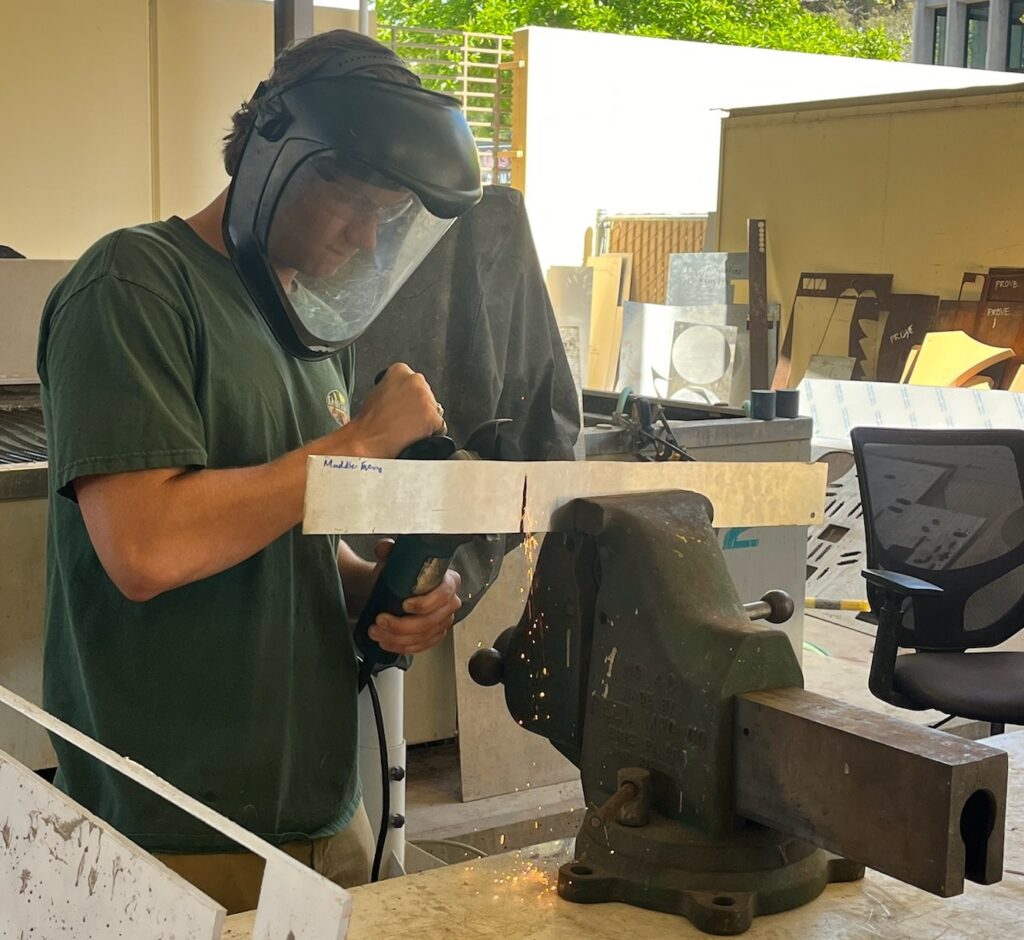
In 2019, four Cal Poly students designed and built an adaptive paddleboard with outriggers for stability. When Coffman and his team put it in the water for the first time at Morro Bay, it proved just how much potential the idea had.
They named the board The Destiny, honoring the first person who had the chance to use it. “She loved it,” Coffman said.
For four summers, The Destiny gave dozens of people the chance to paddle, drawing smiles and sparking curiosity among boaters who had never seen a wheelchair on the water. But after several years of use, new ideas for improvement emerged, leading Coffman to approach the college in 2023 to develop a second edition.
“Think you can make it even better?” he asked.
Refining the Design
That’s where mechanical engineering student Rémy Lacchia came in. When the list of senior projects was announced, he immediately gravitated toward the paddleboard redesign.
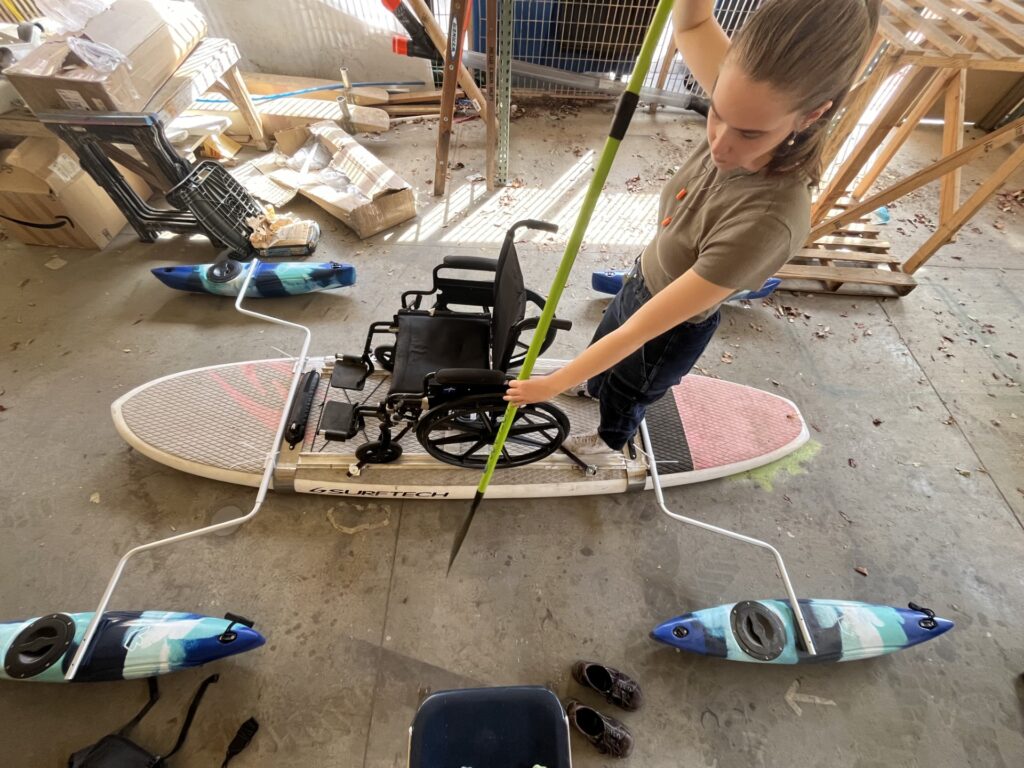
“That was my top project,” Lacchia said. “I had worked with adaptive sports before, so it felt like the perfect way to apply engineering to something meaningful.”
Lacchia grew up surfing on the Jersey Shore and volunteering with a nonprofit that introduced kids to surf therapy. The chance to combine those passions with engineering made the paddleboard redesign an easy choice.
Lacchia and his teammates — Katie Kellum, Madeline Evenson and Shelbi Sullaway — set out to refine the design with clear goals: reduce weight, improve maneuverability, simplify assembly and allow for different levels of stability as users progressed in their skills.
The original board relied on two large pontoons for stability, but they restricted maneuverability. The redesign replaced them with four smaller, removable pontoons, enhancing agility and allowing users to adjust stability as they gained confidence. A lightweight aluminum frame reduced weight while maintaining support and a swivel seat made transitions from a wheelchair to the board easier.
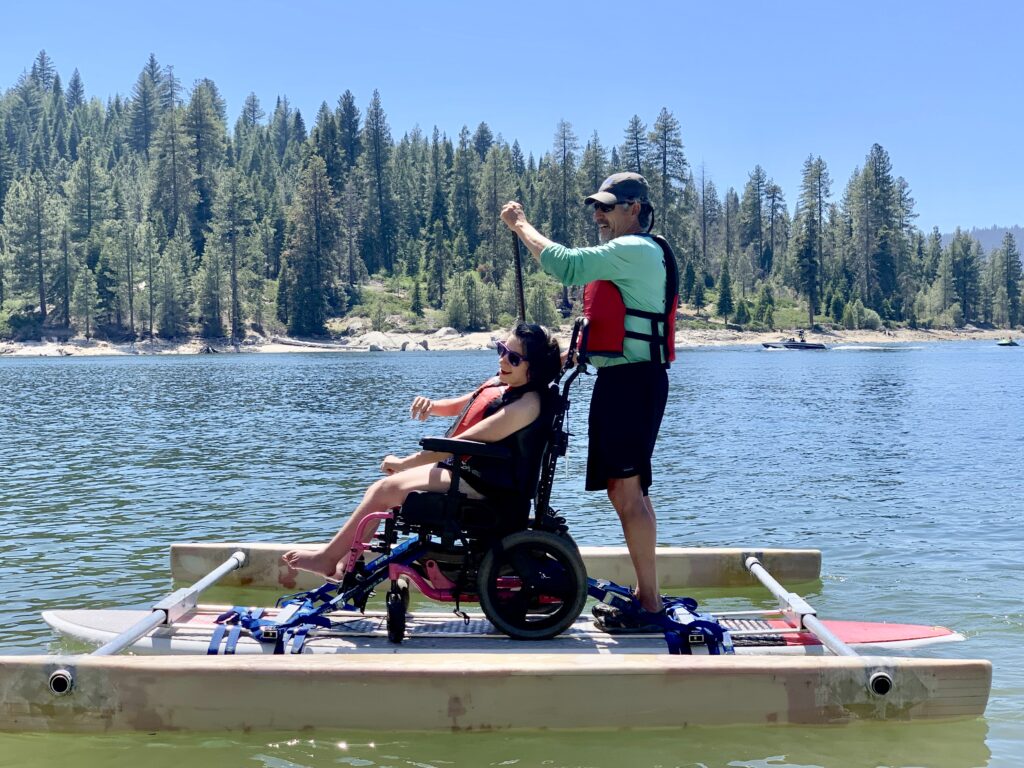
Lacchia spent hours in the machine shop welding the new frame, refining each connection until the design came together.
“I got really good at aluminum welding,” he said with a grin.
In mid-fall, the team brought the board to Lopez Lake for testing, watching months of design and testing pay off as the board performed just as they had envisioned. Its sleek new design and improved functionality earned it a new name: The Waterbug, inspired by its four pontoons, which spread out like tiny legs skimming across the water.
With another summer at Shaver Lake on the horizon, Coffman now has the upgraded board in hand, ready to introduce new possibilities for adaptive athletes. And just like The Destiny before it, this new board won’t just provide a way to paddle — it will create opportunities for freedom and connection that reach beyond the water.
Call to Action: Support the Innovators!
Cal Poly’s Mechanical Engineering Department is at the forefront of developing solutions like adaptive paddleboards, enhancing outdoor experiences for individuals of all abilities. Your contribution can directly impact these initiatives, fostering innovation and inclusivity. To donate, visit the department’s giving page at me.calpoly.edu/giving.
